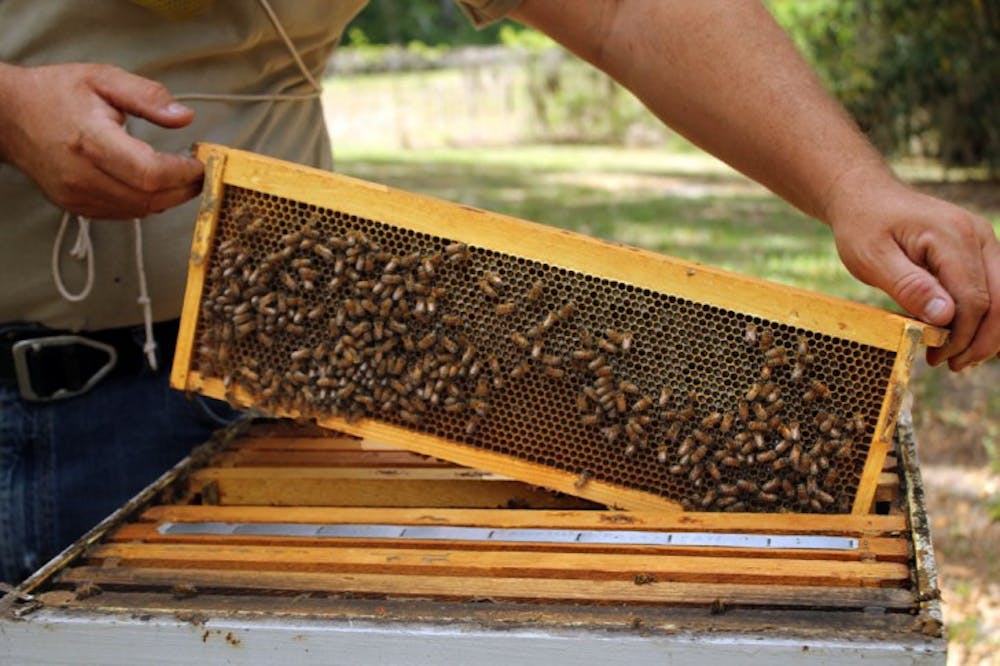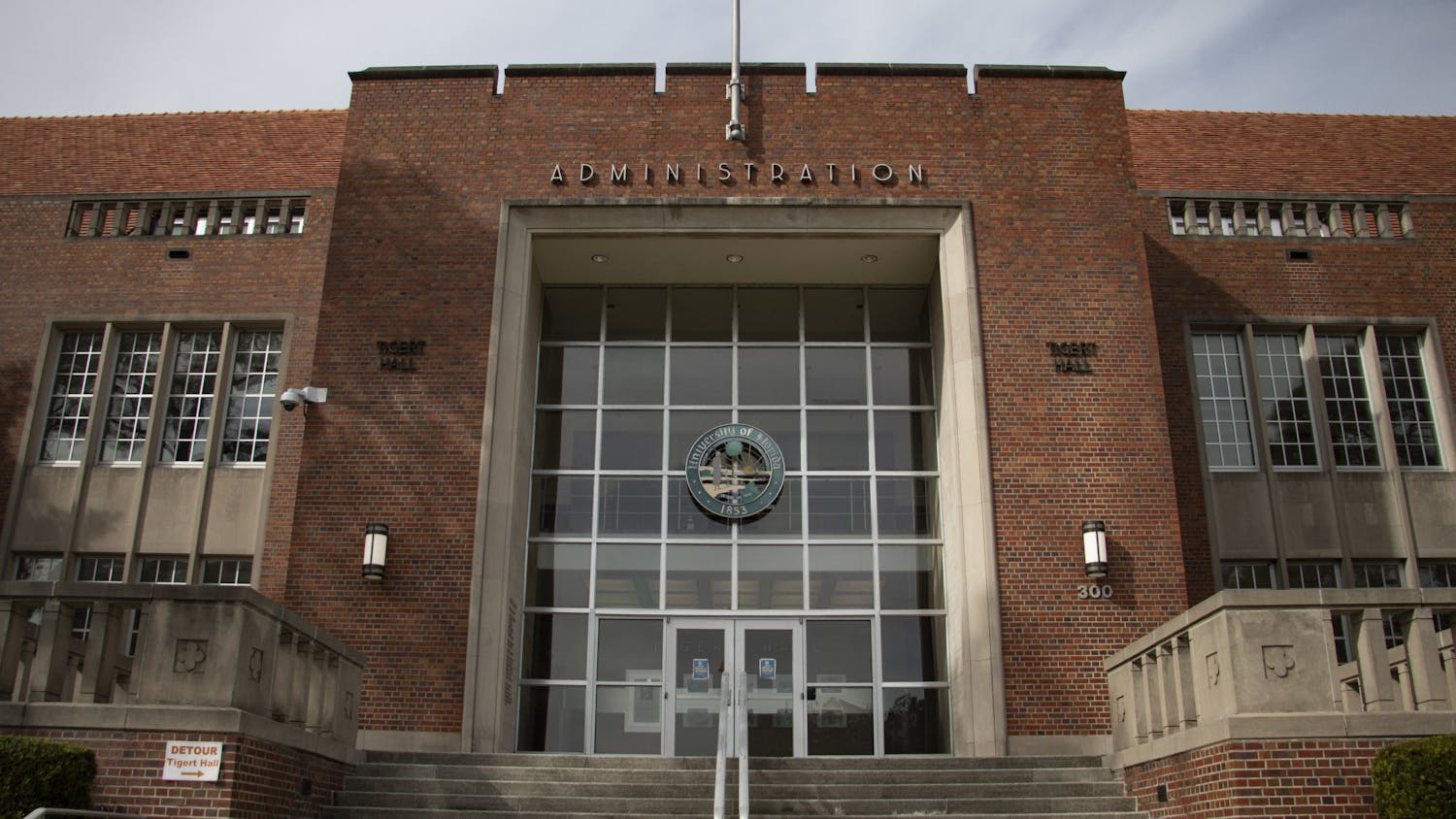Mark Dykes isn’t scared of bees.
The 35-year-old research technician and apiary manager gently lifted a tray from a hive at the UF Bee Biology Research Unit on a recent afternoon.
His face lit up as bees wriggled around on the honeycomb, buzzing dangerously close to his exposed skin.
According to James Ellis, assistant professor of entomology, bee colony populations are peaking in strength two to three weeks earlier than usual this year.
Bee populations directly correlate to the amount of vector-pollinated plants blooming in the area, which need animals like bees to pollinate them.
“As pollen and nectar-rich plants become increasingly available, bee colonies grow at a more rapid rate,” Ellis said.
Mark Whitten, senior biologist at the Florida Museum of Natural History, said plants are blooming two to three weeks early this year.
“It’s not a typical spring by any means,” he said.
Honey bee populations usually peak at around mid-April to the end of May.
Ellis said the peak can be attributed to the recent warm weather in the Gainesville area.
“Spring is in bloom,” Ellis said. “They’re peaking early but not abnormally.”
With bee populations becoming active earlier in the year, students should be aware of the stinging insects.
“Sometimes stings can be pretty minor,” said Dr. Phillip Barkley, director of the Student Health Care Center.
Barkley said if you get stung, remove the stinger and apply ice to manage the redness.
He suggested taking Benadryl to reduce possible itchiness.
At the apiary, Dykes softly smoked the hive, masking the bees’ pheromones and calming the creatures. They slowed slightly, dazed.
Barehanded, Dykes brushed their fuzzy backs with his finger, coaxing them to cooperate.
“Come on, girls,” he said encouragingly.
For students not as serene as he is around bees, Dykes offered light-hearted advice should they suddenly find themselves surrounded.
“Just don’t swat at them,” Dykes said smiling. “Don’t swat and you’re fine.”
Research technician and apiary manager Mark Dykes lifts a tray from a hive at the UF Bee Biology Research Unit.






